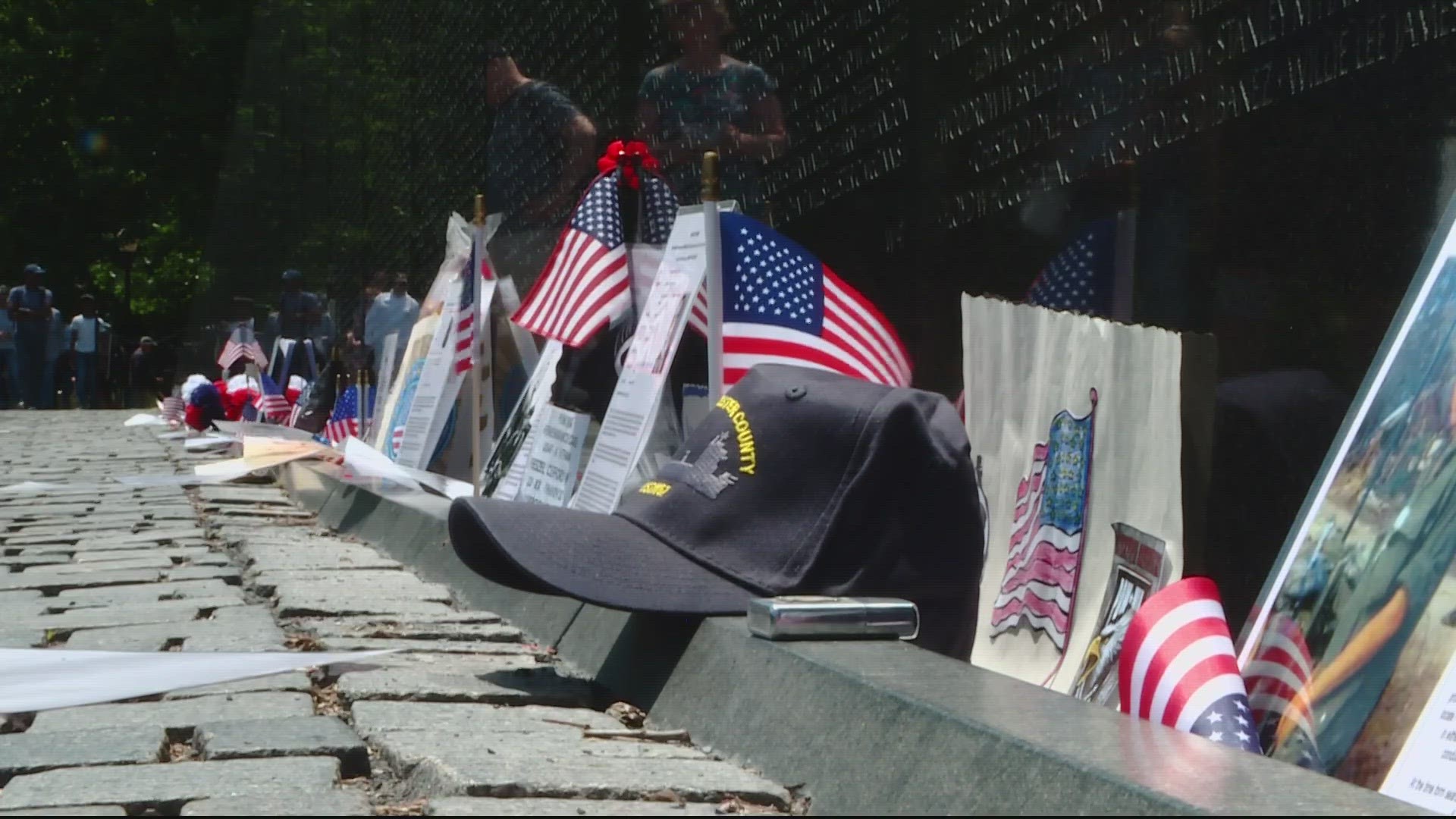WASHINGTON — As Memorial Day nears, the legacy of the Vietnam War weighs heavy for many veterans who served in the conflict that ended 50 years ago.
Ahead of this landmark anniversary, veterans at the National Mall shared their reflections of a half-century passed.
“Some of the lessons learned were blessings," said James Kendig, who served in Vietnam. "Some of what I had to endure because of being there is not."
Kendig said the hardships did not end, when he finally came home from the conflict.
"Some of us ended up spit on," he said. "They threw stuff on us...We were nothing but the trash that should have been thrown out and treated as such."
Kendig spoke with our news crew outside of a Poppy display, organized by USAA. More than 645,000 poppies were put in a display, representing all the service members who have died since World War I.
Joseph Sluder, an Air Force Veteran who works for USAA, said the anniversary was special to him because his father did two tours in Vietnam. He said his father, Edward Sluder, spent 24 years in the Air Force.
"They didn’t return with the respect and honor that we wanted them to," he said.
Sluder said that it took decades for his father to talk about his return from war, and the negative response he received.
"He thought he’d be coming back to a celebration for his service and his loyalty for the country," said Sluder. "But he was met with a lot of negativity and it took him a long time to talk about it."
All these years later, Sluder think of Memorial Day as an opportunity to right some of those historic wrongs.
"This is an opportunity for us to try to get any Vietnam Vet we see out and try to change that," he said. "And say ‘thank you' - to honor their service they didn’t get the first time.”
Jesus Godinez, another Vietnam veteran, said he rode his motorcycle all the way from California to be at the nation's capital for Memorial Day weekend. Along the way, he stopped at veteran events across the country and reminded people of the true meaning of the holiday.
“When it comes to our freedom," he said. "Our ability to speak the way we want to, do what we want to, to protest if we want to against our government - that price of freedom has been paid with those 650-thousand people who gave up their lives.”

